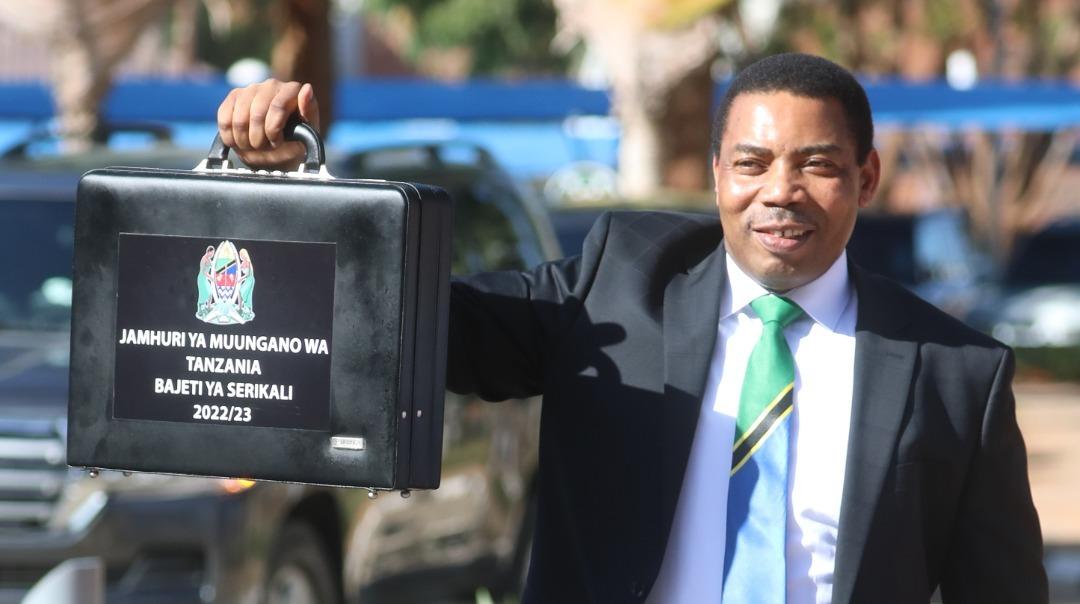Africa-Press – Tanzania. Dar es Salaam.
Opposition parties Chadema and the Civic United Front (CUF) yesterday touched on the need for a new constitution, universal Taxpayer Identification Number (TIN), the national debt, agricultural transformation, and the rising cost of living in their views on the 2022/23 Budget.
They asked the government to act before its proposals are passed by the National Assembly.
With Parliament resuming debate on the Sh41.48 trillion revenue and expenditure plan for the fiscal year 2022/23 today, Chadema and CUF said the issues needed more scrutiny before the proposals are endorsed by the House and eventually passed into law through the Finance Act, 2022.
While the government unveiled measures it plans to take to reduce the cost of living, including establishing a Fuel Price Stabilisation Fund (PSF), providing fuel subsidies, and allowing suppliers who are capable of importing fuel at affordable prices to do so, the opposition parties said the Finance Bill was silent on the issues.
Chadema secretary-general John Mnyika said due to the war in Ukraine, fuel prices had risen, and apart from providing a Sh100 billion subsidy to keep prices in check, the government had also promised that it would come up with a long-term solution.
“However, there is nothing in the Finance Bill that reflects this. We have only witnessed a minor change whereby the government is transferring the Sh20 levy per litre, previously paid by fuel station owners, to the importer,” he said.
Although he acknowledged that Russia’s war in Ukraine had increased the cost of living, Mr Mnyika urged the government to reconsider various fees, taxes and levies imposed on the fuel sub-sector.
“The government’s various charges account for Sh920.18 of the price of a litre of petrol, and yet there is nothing tangible apart from the initial bailout of Sh100 billion. This shows that the country’s fuel status will remain the same. There is nothing in the Finance Bill showing that the government intends to abolish some taxes and charges to reduce fuel prices,” he said.
Speaking separately, CUF chairman Ibrahim Lipumba said the government should ensure that the cost of living was bearable.
He added that current inflation figures do not reflect the reality.
Prof Lipumba said numbers cited by Finance and Planning minister Mwigulu Nchemba were also detached from the country’s “real” economic status.
While the government intends to increase sales of horticultural products from $750 million annually to $5 billion by 2030, the state of the national economy tabled in Parliament last week shows that actual exports of horticultural products have been on the downward trend, decreasing from $1.207 billion in 2016 to $1.001 billion in 2021, he said.
“In order for the said exports to reach $5 billion by 2030, we need to have an annual growth of 19.6 percent. Besides, the 2021 government data on the economy suggested that the sales related to horticultural products were actually valued at $373 million and not $750 million.”
Both parties also lamented the ballooning national debt, and urged the government to desist from borrowing commercially, saying by doing so, it encouraged banks to go for government securities instead of lending to the private sector, which is regarded as the engine of the country’s economic growth.
The opposition parties further urged the government to reconsider its move to link the Taxpayer Identification Number (TIN) with the National Identification Card, saying the move would restore the unpopular poll tax (a fixed sum per head was charged on every adult, without reference to their income or resources).
Chadema said the government abolished the poll tax in 1969.
This was partly in response to public opposition to harsh methods of tax collection used by local authorities, but it was reintroduced in 1982, and renamed “development levy” before being abolished again.
Mr Mnyika argued that those who were eligible for national IDs would shun them as a result because they would associate them with the taxman.
For More News And Analysis About Tanzania Follow Africa-Press







